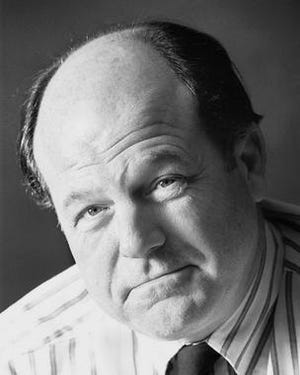Legal profession took root early in 1800s Columbus
It shouldn’t be too surprising to learn that Columbus has a lot of lawyers and that such has been the case since the capital city was founded in 1812.
As the eventual location of federal and state courts, as well as local jurisdictions, the town provided ample opportunities for legal practice. In later years, federal, state and local government agencies, as well as the state university in Columbus, provided further opportunities for legal service.

Although the need for legal services has been present for many years, the practice of law has changed significantly with the passage of time. Today, most attorneys and legal practitioners have attended some sort of educational institution, taken formal testing and been accepted through a legal approval method.
That was not always the case.
As It Were:First statehouse couldn’t survive growing Columbus
For most of Ohio’s early history, young men wanting to become attorneys did not attend law school. Instead, one would become a virtual apprentice and “read law” with guidance and instruction from a practicing lawyer. When the attorney and his student felt ready, the student would be tested by a panel of local practitioners, and upon passing the test, he would be admitted to the bar.
Becoming a lawyer moved young men of varied origins into a professional middle class that was quite small in the 1800s. It was considered improper and inappropriate for a woman to become a lawyer until well in to the late 1800s. Many other people of varied ethnicity, race or national origin also were excluded from consideration. The legal profession was something of a separate society.
Having said that, it should be noted that the practice of law was considerably different in Ohio’s early history from what it is today.
The first common-pleas court in Franklin County was created in 1803. It consisted of four judges. Three judges – John Dill, David Jamison and Joseph Foos – were not attorneys at all. Only the presiding judge – Wyllis Silliman – was a lawyer. The other men were described in a later history as “good, public-spirited citizens which under a later system was transferred to the County Commissioners and the Probate Judge.”
Soon after the court was established, five men from other towns came to Columbus and asked to practice in the new court. Within a short time, several lawyers located in Columbus. Among the most prominent were Gustavus Swan, Orris Parrish, Noah Swayne, P.B. Wilcox and Lyne Starling.
Regardless of where they lived, though, most lawyers in the new state traveled frequently and extensively. Prominent local attorney Richard Harrison later wrote of his memories of those early days.
“In the early history of Ohio, each judicial circuit was composed of many counties, and each county was very large,” Harrison wrote. “The lawyers traveled with the President Judge of the circuit from county to county, on horse, over wretched roads, a great part of the year, with their papers and books in their saddlebags, and some of them, not without flasks and packs. They were often compelled to lodge two in a bed, thus carrying into practice Blackstone’s theory that the science of law is of a sociable disposition.
“A session of the court was an event of interest to all the inhabitants. It was largely attended by mere spectators. The lawyers were thereby stimulated to do their best, much more than they were by the pittances received from their clients. Trials were of short duration. The lawyers went straight to the material points in controversy and the fray was soon ended. A trial was not a siege, but a short hand to hand contest.”
Over time, the legal profession became well-established in Columbus. A later history reported that “because of the number of courts in Columbus, the city was at a very early day a mecca of lawyers. Primitive means of travel caused delays and lawyers were here brought together more frequently in a social way than they now are.”
Local attorney J.J. Critchfield later recalled the legal world of 1840.
“The meeting of lawyers in Columbus, in attendance upon the court, became in effect a high school of law and oratory. The men who thus assembled were the flower of the Ohio Bar, and in measuring strength with one another in the discussion of causes in court, they developed and exhibited the highest intellectual powers of the profession and the best specimens of forensic eloquence. … We may well imagine what deep interest the court and bar, as well as the general public, would take in these battles of the giants.”
Columbus has become a city known for great lawyers and really great cases. Many of the people and the cases in which they practiced are worth stories of their own. For now, it would be well to conclude as a previous history did a little more than 100 years ago.
“Suffice it to say,” the earlier writing noted, “that for talent, virtue and achievement they measure well, and the bench and bar of Columbus will not suffer by comparison with any similar group in the land.”
Local historian and author Ed Lentz writes the As It Were column for ThisWeek Community News and The Columbus Dispatch.
Read More: Legal profession took root early in 1800s Columbus

